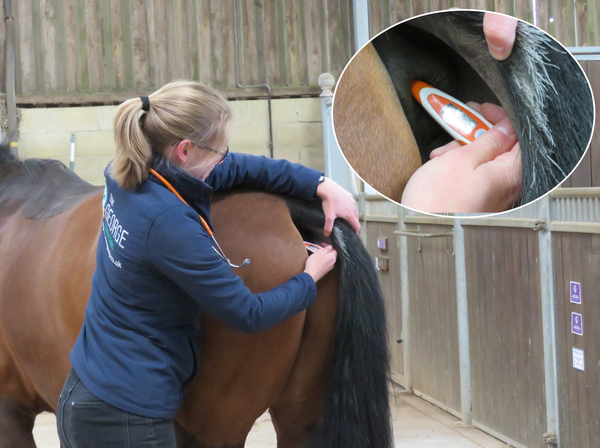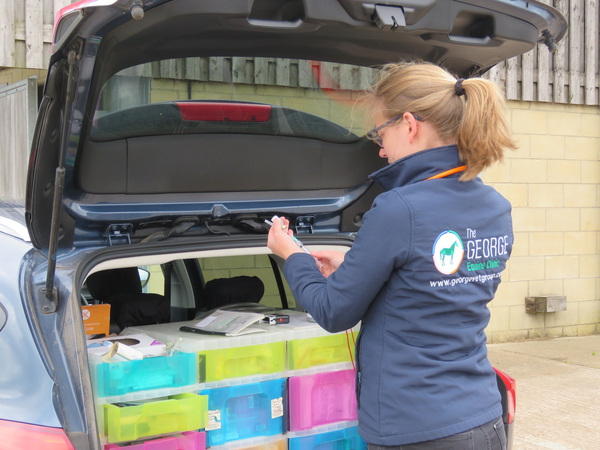News
Equine Herpes Update
We're sure that you are by now all aware of the recent outbreak of Equine Herpes Virus within Europe, first reported at a competition in Valencia. Although there are 5 types of Equine Herpes Virus, the most clinically important ones are EHV-1 and EHV-4.
 Clinical signs of Equine Herpes Virus include a fever, coughing and a clear nasal discharge. In addition to this, the neurological form of EHV-1 is characterised by a lack of coordination, weakness, difficulty urinating and defaecating and recumbency. In pregnant mares EHV can also cause abortion. A horse displaying any of these clinical signs should be isolated and veterinary advice should be sought immediately.
Clinical signs of Equine Herpes Virus include a fever, coughing and a clear nasal discharge. In addition to this, the neurological form of EHV-1 is characterised by a lack of coordination, weakness, difficulty urinating and defaecating and recumbency. In pregnant mares EHV can also cause abortion. A horse displaying any of these clinical signs should be isolated and veterinary advice should be sought immediately.
EHV is an airborne virus and spread by close contact (nose to nose). The virus can also be spread by sharing equipment or tack and people touching infected animals. Once a horse has been infected, EHV can also lay dormant becoming reactivated during times of stress. The horse can then silently shed the virus into the environment, infecting susceptible horses.
As a result of the way EHV behaves, controlling it can be challenging. Isolating any horse exhibiting clinical signs of EHV and seeking veterinary attention is crucial to early identification of clinical cases. Isolate all new horses on the yard for at least 14 days and monitor temperatures throughout this period. Maintaining high levels of hygiene, avoiding nose to nose contact with visiting horses, not sharing equipment and disinfecting horse boxes and stables thoroughly between horses.
 Vaccination is also a useful tool in the control of EHV. Vaccinations can be started in any horse over 5 months old and involves a primary course of 2 vaccinations 4-6 weeks apart, followed by 6 monthly boosters - Please note this is a different schedule to what we recommend in pregnant mares and also remember that, under FEI regulations, you are not permitted to compete within 7days of having a vaccination.
Vaccination is also a useful tool in the control of EHV. Vaccinations can be started in any horse over 5 months old and involves a primary course of 2 vaccinations 4-6 weeks apart, followed by 6 monthly boosters - Please note this is a different schedule to what we recommend in pregnant mares and also remember that, under FEI regulations, you are not permitted to compete within 7days of having a vaccination.
Vaccination is not protective against clinical disease, it does reduce the amount of viral shedding and duration of clinical signs. However, in a similar way to Covid-19, a vaccinated population is protected via herd immunity.
Vaccination is not recommended in the face of an outbreak, i.e. where there are suspected clinical cases on yard.
If you would like to discuss EHV, vaccination, biosecurity or any further questions with one of the George Equine Vets, please call us on 01666 826456.



